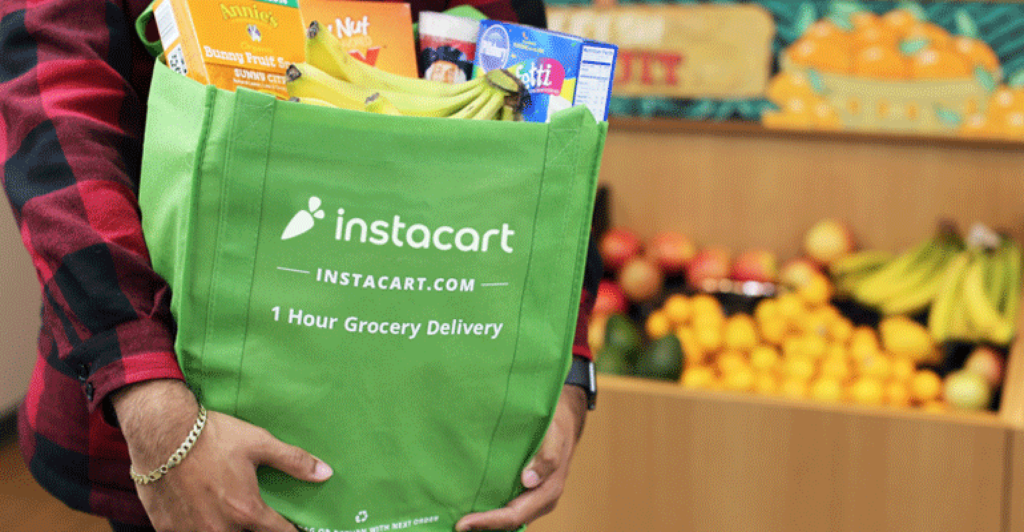Shares of grocery delivery platform Instacart jumped about 11% this week after an analyst speculated that the company could be an acquisition target for Uber Eats.
Instacart, which went public at $42 per share last September, has seen its stock languish ever since, falling to a new low below $23 earlier this month before rebounding back up to about $27 on Wednesday.
Deepak Mathivanan, an analyst at Wolfe Research, this week upgraded Instacart to an “outperform” rating and said the company could be a takeover target for Uber Technologies, parent of Uber Eats, according to reports. He noted that investors are concerned about Instacart’s sales growth potential, but he believes the company is “not a broken business” as the share price implies.
Wolfe raised its price target for the stock to $35 per share. Instacart currently has a market capitalization of about $7.2 billion.
A spokesperson for Instacart declined to comment on the speculation of an acquisition, and Uber could not be reached for comment. Wolfe Research also could not be reached for comment.
In its third-quarter earnings release in November — its first since going public — Instacart posted a loss of about $2 billion, primarily related to its IPO, but said that adjusted EBITDA more than doubled vs. the year-ago third quarter, to $163 million. Revenues for the quarter were up 14.4%, to $764 million, vs. the prior-year period.
Instacart’s IPO has been closely watched among investors as one of the few new stock offerings to hit the market last year.
Uber, the ride-hailing service founded in 2009, launched the Uber Eats app in 2015, primarily focused on the delivery of restaurant meals. It launched grocery delivery in July of 2020, during the height of the COVID pandemic, and added several features, such as live tracking of orders and enhanced support for shoppers, in 2022.
An eMarketer report last year estimated Instacart’s share of the U.S. third-party grocery delivery market at 73%, followed by DoorDash at 10.9%, and Uber Eats at 7.2%. It also competes with self-distributing online grocery services such as Amazon, Walmart, Target, Kroger, and others.


